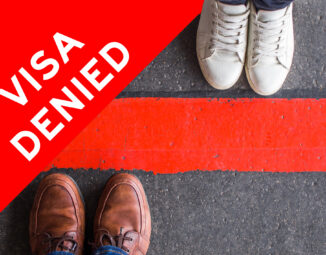Employers Beware: DOJ Nearly Doubles Civil Penalties for IRCA Violations
On June 30th The Department of Justice (DOJ) published an Interim Final Rule adjusting civil monetary penalties for immigration related employment violations set forth in the Immigration Reform and Control Act of 1986 (IRCA). IRCA provides civil and criminal penalties for employers who knowingly hire workers who are not authorized to work in the United States. The law also creates protections for foreign workers against discrimination based on national origin. In order to enforce the provisions of IRCA, the Form I-9 was created, which requires documentation of employment authorization for all employees, not just those who are, or who appear to be, foreign workers. Improper completion and retention of I-9 forms and unfair immigration-related employment practices can cost employers thousands of dollars in fines based on IRCA violations.
As a short hand primer on IRCA compliance, here’s what employers must and must not do:
Employers Must:
- Verify the identity and employment authorization of each person hired after Nov. 6, 1986.
- Complete and retain a Form I-9 for each employee required to complete the form.
Employers Must Not:
- Discriminate against individuals on the basis of national origin, citizenship, or immigration status.
- Hire, recruit for a fee, or refer for a fee aliens he or she knows to be unauthorized to work in the United States.
Employers who violate the law may be subject to:
- Civil fines
- Criminal penalties (when there is a pattern or practice of violations)
- Debarment from government contracts
- A court order requiring the payment of back pay to the individual discriminated against
- A court order requiring the employer to hire the individual discriminated against
The recent changes announced by the Department of Justice provide for increased fines for I-9 violations and unfair immigration related employment actions. The following are examples of the increased fines under the new Final Rule:
- Unlawful employment of aliens, first violation:
- Previous Penalty: Minimum of $375 to maximum of $3,200
- New penalty: Minimum of $539 to maximum of $4,313
- Unlawful employment of aliens, second violation:
- Previous Penalty: Minimum of $3,200 to Maximum: of $6,500
- New penalty: Minimum of $4,313 to Maximum of $10,781
- Unlawful employment of aliens, subsequent violations:
- Previous penalty: Minimum of $4,300 to maximum of $16,000
- New penalty: Minimum of $6,469 to maximum of $21,563
Additional fines also include fines for violations of improper completion and retention of I-9 forms as well as unfair immigration-related employment practices. For a complete list of the revised fine schedule, see DOJ Final Rule 81 FR 4291: “Civil Monetary Penalties Inflation Adjustment.”
The DOJ’s new fine schedule serves as a wake-up call for employers, especially those in the hospitality, food service, or agriculture sectors, which hire large numbers of foreign workers. In some cases the fines for I-9 violations have almost doubled. We, therefore, strongly urge employers to do the following:
- Review your I-9 practices and policies to assure compliance, especially in the area of reverification, e.g. when an employee has new immigration documents that need to be updated on his or her I-9 form;
- Conduct an internal I-9 audit to see where you are compliant and where revisions must be made; and
- Consider an external audit by expert immigration counsel.
Best practices suggest regularly reviewing your I-9 policies. The new DOJ Final Rule gives an added incentive. HRLegalist remains at the ready to keep employers and all our readers up to date on matters critical to immigration in the workplace.



